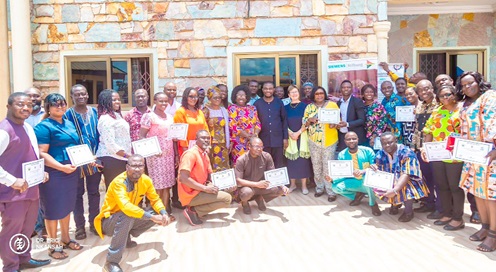By: Emmanuel Amoah
Ghana stands out as one of 15 nations among UNESCO’s 198 member countries to successfully incorporate artificial intelligence (AI) into its school curricula. This milestone reflects the country’s commitment to modernizing its education system and preparing students for the future.
The current Standards-Based Curriculum (SBC) for Computing, introduced from Primary Four to Six, emphasizes the practical applications of AI. The curriculum includes foundational AI ethics, databases, AI techniques, programming, and algorithmic thinking. In Junior High School (JHS), students further explore computational thinking, with sub-strands covering Programming, Algorithms, Robotics, and Artificial Intelligence.
“These topics are supported by detailed content standards, indicators, and exemplars to help teachers effectively achieve the curriculum’s objectives,” noted Dr. Eric Nkansah, Director-General of the Ghana Education Service (GES).
Strengthening STEM Education
Speaking at a week-long retreat for STEM coordinators, themed “Empowering STEM Educators for the Future,” Dr. Nkansah highlighted the progress Ghana has made in enhancing Science, Technology, Engineering, and Mathematics (STEM) education.
He stated, “We have successfully integrated AI competencies into the STEM curriculum at the senior high school level. Courses such as Computer Science, Engineering, and Robotics now incorporate AI elements.”
At the secondary education level, the computing curriculum introduces students to app development and web technologies, allowing those who opt for elective computing courses to explore the field of AI.
This strategic integration underscores Ghana’s efforts to equip students with the skills needed to thrive in a rapidly evolving technological landscape.






